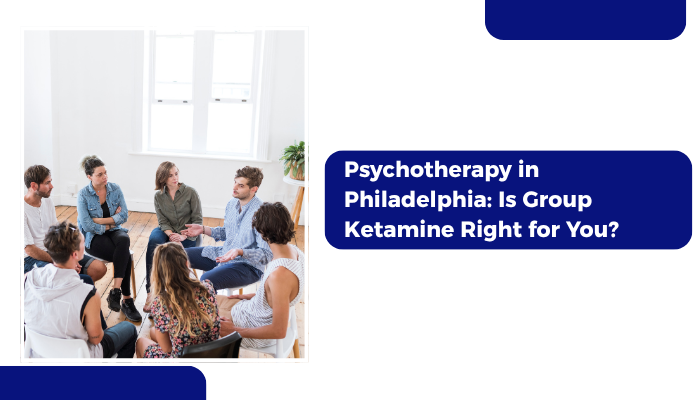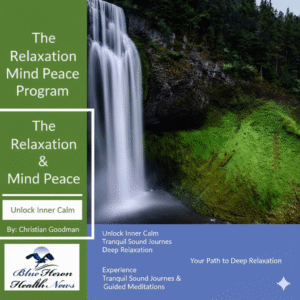Psychotherapy in Philadelphia: Is Group Ketamine Right for You?
Not long ago, someone I knew walked into a group therapy session held in a small, quiet office just outside...

Not long ago, someone I knew walked into a group therapy session held in a small, quiet office just outside Center City. There were six people seated in a circle, some nervous, some open, others quiet, all there for the same reason: they were struggling, and nothing else had quite worked. But this wasn’t just any group therapy session. It was group ketamine-assisted psychotherapy, a treatment approach that’s growing rapidly, especially in places like Philadelphia, where forward-thinking therapists are offering new hope to people who’ve tried everything.
If you’re exploring psychotherapy in Philadelphia and wondering whether group ketamine sessions are a legitimate and effective option, this article is for you. Let’s break down how it works, who it’s for, and what to consider before stepping into the room.
What Is Group Ketamine-Assisted Psychotherapy?
To understand the buzz around group ketamine therapy, it’s important to understand what ketamine-assisted psychotherapy (KAP) actually is.
Ketamine, originally developed as an anesthetic, is now being used off-label for the treatment of mental health conditions like depression, PTSD, anxiety, and chronic stress. When administered in a clinical setting, usually by licensed medical professionals, it’s combined with psychotherapy to help patients access deeper emotional material in a shorter amount of time.
In a group setting, multiple individuals go through the ketamine experience together, supported by a trained therapist and, often, medical staff. Each person’s journey is personal, but the shared space creates a kind of community healing dynamic that one-on-one sessions don’t always offer.
And here in Philadelphia, many psychotherapy practices are starting to include this model as part of a broader shift toward integrative and evidence-based care.
Why More People in Philadelphia Are Exploring Psychedelic Psychotherapy
If you’ve looked into psychotherapy in Philadelphia recently, you may have noticed that more providers are incorporating alternative and holistic methods into their practice. Why?
Because traditional talk therapy, while valuable, isn’t always enough.
Many clients in Philly (and beyond) report hitting a wall with conventional treatments. They’ve tried multiple antidepressants. They’ve been in therapy for years. They’ve journaled, meditated, exercised- and still feel stuck.
That’s where ketamine therapy comes in.
According to studies published by Johns Hopkins and Yale, ketamine can reduce symptoms of depression and PTSD in as little as one session, with effects lasting several days or even weeks. When combined with therapy, especially in a group format, it creates a powerful opportunity for insight, connection, and change.
In a city like Philadelphia, with its diverse and evolving mental health landscape, group ketamine therapy is filling a much-needed gap.
Benefits of Group Ketamine Sessions in a Psychotherapy Setting
Let’s talk about why group ketamine therapy isn’t just cost-effective—it can be transformational.
1. Shared Healing, Shared Humanity
There’s something powerful about sitting in a room with others who are struggling in their own way. When the medicine starts to take effect and the therapist gently guides the group inward, there’s a sense of collective vulnerability. It can feel like, “I’m not alone in this.”
Philadelphia’s therapy community has long embraced group work—from grief circles to support groups for trauma survivors. Group ketamine therapy simply builds on that tradition, with a modern twist.
2. Affordability and Access
Let’s face it- psychotherapy in Philadelphia isn’t cheap. Individual ketamine sessions can cost $400 to $800 per treatment. But group sessions often come at a lower cost, making them more accessible for people without high-end insurance or big budgets.
It’s not about compromising quality- it’s about expanding access to care that truly works.
3. Faster Insights, Deeper Work
Ketamine changes brain chemistry. It temporarily disrupts default thought patterns—like the negative inner dialogue common in depression or anxiety- and opens up new neural pathways.
In group therapy, this means that someone might hear another participant’s insight and suddenly connect it to their own experience. It’s a ripple effect of awareness that can be surprisingly profound.
What to Expect in a Group Ketamine Psychotherapy Session
If the idea of psychedelic therapy in a group setting sounds intimidating, you’re not alone. Many people feel nervous before their first session. That’s perfectly normal.
Here’s what a typical group ketamine session might look like in a Philadelphia psychotherapy clinic:
- Pre-session consultation – You’ll meet with a therapist or prescriber to make sure you’re a good candidate.
- Preparation session – You and the group will gather to set intentions, discuss safety, and learn what to expect.
- Medicine session – Usually held in a calm, comfortable room. You’ll take ketamine (often via lozenge) and wear eye masks and headphones as music plays. A therapist will stay present throughout.
- Integration session – After the experience, you’ll return with the group to share insights, ask questions, and reflect. This is where the real healing often begins.
Providers in Philadelphia often structure these as multi-week programs, offering a blend of medical oversight, trauma-informed care, and ongoing support.
Who Is It For?
Group ketamine-assisted psychotherapy may be helpful for:
- People with treatment-resistant depression
- Those living with chronic anxiety or PTSD
- Individuals seeking deeper emotional clarity or connection
- People who feel stuck in traditional talk therapy
That said, it’s not for everyone. If you have a history of psychosis, certain heart conditions, or unmanaged bipolar disorder, ketamine may not be recommended.
Always speak with a qualified provider before starting. Fortunately, Philadelphia’s psychotherapy community includes many licensed professionals who are trained to assess suitability and provide safe, ethical care.
Real Stories, Real Healing
One participant from a recent Philadelphia-based group program shared this:
“I had spent years in therapy, talking about my trauma. But in one ketamine session, I felt the root of it. And in the integration group, I finally said something I’d never been able to say out loud. That changed everything.”
It’s these kinds of stories- quiet but powerful- that are fueling the rise of group ketamine psychotherapy in the city.
Final Thoughts
The field of mental health is changing. And here in Philly, where history and innovation often collide, psychotherapy in Philadelphia is evolving too.
Group ketamine-assisted therapy isn’t a magic fix. But for many, it’s the first thing that’s worked in a long time. It offers structure, science, support- and most importantly, hope.
So if you’ve been searching for a new way forward, ask yourself: Am I open to something different?
If the answer is yes, it might be time to explore a group program near you. Because healing doesn’t have to be lonely- and in Philadelphia, it certainly doesn’t have to be traditional.
Click – thenewsus.com



